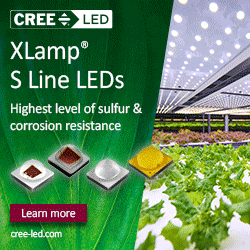Lifeasible Provides Detoxification Services for Various Plant Samples
Lifeasible, a biotechnology company that provides overall solutions and personalized technical services to researchers in the field of plant science, now provides detoxification services for a variety of plant samples to customers worldwide.
Lifeasible, a biotechnology company that provides overall solutions and personalized technical services to researchers in the field of plant science, now provides detoxification services for a variety of plant samples to customers worldwide.
Plant viruses can infect a wide range of plants, including grain, fruit trees, oilseeds, vegetables, and flowers. In severe situations, this can result in plant death and cause significant economic losses to harvests. Plant virus infections have gotten worse every year as a result of the expansion of germplasm exchange, modifications to farming practices, and asexual reproduction of virus-bearing materials.
In nature, there are over 2,000 different virus species, and over 600 have been found to be able to infect plants. The majority of significant cash crops are propagated on a wide scale by grafting or cuttings; if rootstock or parent plants are viral-infected, this might result in a brief outbreak of the virus, which can severely reduce productivity. Therefore, a top research concern for breeders is how to implement practical ways to avoid and control the appearance and spread of plant viruses.
Lifeasible has enhanced its plant detoxification service on the tissue culture technology platform since it recognizes the value and necessity of this process.
Up to now, a wide range of services are available at Lifeasible, including:
Genetic engineering detoxification
A variety of resistance genes can be selected to control virus or virus compound infection.
Detoxification method of heat treatment combined with stem tip culture
High temperatures are used to denature the protein, passivate the virus, and then produce viral-free plant material.
Chemical detoxification
Antiviral agents were chosen and applied to the culture medium to remove the virus in accordance with the traits of the varieties, which might considerably increase the likelihood of virus-free plants.
Detoxification method of anther culture
The cost of producing seedlings free of viruses is lower and anther culture's detoxifying rate is higher. The culture cycle was longer, but the rate of induced differentiation was lower.
Detoxification method of stem tip tissue culture
Detoxification method of cryopreservation combined with stem tip culture
Callus culture and detoxification
With rich experience in the detection and classification of plant virus, Lifeasible is committed to solving various problems in plant detoxification research. Please visit https://plant.lifeasible.com/plant-detoxification-services.html to know more.
Featured Product

Advanced Mid-Power and High-Power LEDs for Horticulture Lighting
Cree LED's J Series® family offers a comprehensive portfolio of mid-power and high-power LEDs engineered specifically for horticulture lighting. The lineup includes high-efficacy 2835, 3030 and 5050 platforms designed to maximize photon output, energy efficiency, and long-term reliability in demanding grow environments. Photophyll™ Select options in the JB3030C and 2835 platforms deliver industry-leading efficiency with excellent sulfur resistance and footprint compatibility with 301B/H devices - making design-in seamless for horticulture luminaires. The 2835 N-Class color portfolio adds even greater flexibility with 15 high-efficacy spectral options that support precise spectrum tuning. For high-power applications, the JR5050C provides the industry's highest efficacy in its class and can reduce system costs by up to 40%. The JR5050B complements this with best-in-class efficacy in both 6V and 30V configurations. The J Series portfolio also features top-performing white LEDs. The JB3030C delivers up to 3.33 PPF/W (typical), while the JB2835B offers the highest efficacy available in a 2835 white platform. Together, these solutions give horticulture lighting manufacturers exceptional efficiency, broad spectral versatility and unmatched design flexibility.
